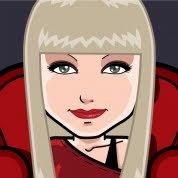No, I didn't make that up; a guy called Ernest Hemingway did. And since he wrote quite a few books that are generally considered, well, not s**t, I like to quote that.
Me, I always compare everything I churn out with the very best published stuff I can find and then I'm ready to give up because my First Draft isn't as good. But does it matter? Does the first draft have to be good in order for the final book to be good?
Not according to my friend Ernest.
Not that he's the only one. To mention someone else, Joanna Bourne refers to her first draft as "a bloated nonsense monster" and as far as I'm concerned, her books turn out great in the end, anyway.
For me, right now, it's like this: I have a plot. I have scenes plotted out. Then I write them and sometimes new things happen, but generally I stay on the plot. And that's it. I write the plot, and I fill in the dialogue but I can't do any nice, snazzy, fancy writing. If I do that I'll lose momentum and I'll be dragged down into a never ending bog marsh of constant revisions. I can't dwell on sensorial details, though the story will need them. I'll toss 'em in occasionally but not very prettily written. And sometimes I need a simile, one specific for my character and really witty, but I can't come up with it right away. So I just skip those. Just to mention a few things that my First Draft bugger lacks.
What I get is the skeleton of a story, the bare minimum. First this happens, then this happens. She says this, he says this. And then lightning strikes. Or whatever. But it's not a full story. As a full story, it IS s**t.
But it's the embryo of a story. With time and revisions and polishing and many, many hours in front of the computer and gallons of coffee and hopefully some cruel and cutting critique, it will be great. I just need not to treat it as what it's not and compare it with stories that have already gone through that transition.
I saw some 'behind-the-scenes' stuff from the making of LOTR today - the part where they talk about making a short film out of the storyboard and the making 3D previz animations of the scenes before shooting them. That's when it hit me - that's how I should look at my First Draft. It's like previz!
If you don't know what previsualization is, Wikipedia explains it like this:
"The advantage of previsualization is that it allows directors to experiment with different staging and art direction options – such as lighting, camera placement and movement, stage direction and editing - without having to incur the costs of actual production. On larger budget project, the director works with artists in a visual effects department or with dedicated previsualization service companies. Previsualizations can include music, sound effects and dialogue to closely emulate the look of fully produced and edited sequences, and are usually employed for complex or difficult scenes that involve stunts and special effects. Digital video, photography, hand-drawn art, clip art and 3D animation have all been used either singly or in combination to preview sequences."
It's more like a very extensive synopsis. Which is exactly what my First Draft is. But it's not until the second draft is done that I should start thinking of it as a real story. Then, third draft (I think) it might start looking like what it should be in the end.
So I'm going to decide my First Draft is like those previz shots - it's about test driving the story. Not creating it - just yet. That'll happen later when I add the truly marvelous writing that will turn it from an ugly larva into a beautiful butterfly.
That's my story and I'm sticking with it. And if you tell me differently, I'll sic Ernest on you!

0 comments:
Post a Comment